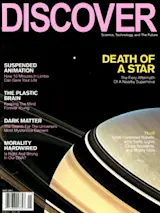The good news, such as it is, is that I never wanted to perform hair transplants professionally, I don’t think. I have a lifelong aversion to the scalps of middle-aged men—you can ask anyone—as well as a more general but just as visceral aversion to people’s pretending to be things they aren’t. Unless the person is me, admittedly, but that’s only because artifice and affectation are all I have.
The bad news is that I couldn’t give men hair transplants even if I wanted to. Not good ones, anyway. A man with a stopwatch has just timed me transferring a pile of steel pins, using tweezers, into a wooden board riddled with little holes. Then he broke the bad news. While perhaps in some other life, some future world, I’ll know the satisfaction of a mantelpiece groaning with Christmas cards from grateful clients—photos of them and the wife in a ...














